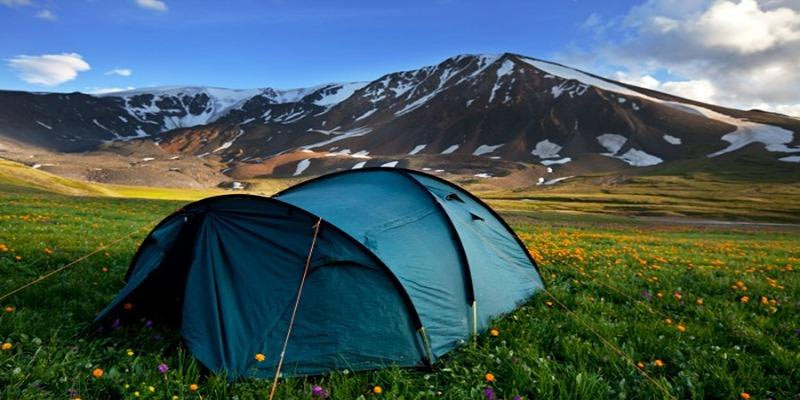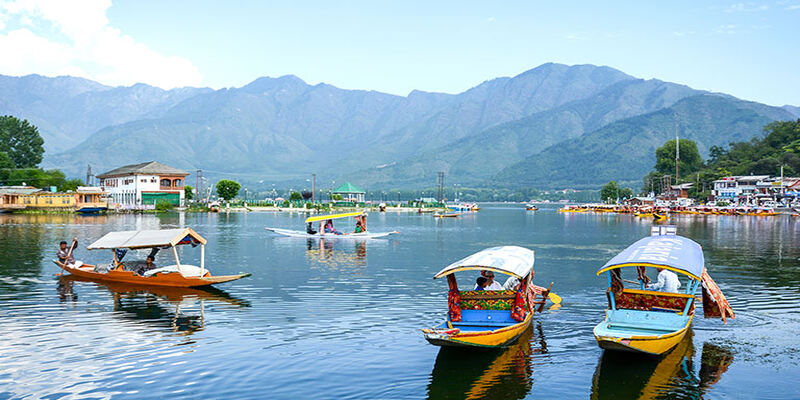The travel industry is constantly evolving, and several trends are expected to shape the future of travel. From the rise of sustainable and responsible travel to the growing popularity of adventure travel and the continued growth of the sharing economy, these trends transform how we think about and plan our travels. Technology is also playing a significant role in the travel industry, with the increasing use of data and AI shaping how we book and experience our trips. As the travel landscape changes, it's important to stay up-to-date on these trends to make informed travel decisions. So, the trends shaping the travel landscape are the rise of sustainable and responsible travel, the growing popularity of adventure travel, the continued growth of the sharing economy, and the increasing use of technology and data in the travel industry.
The Rise Of Sustainable And Responsible Travel

Sustainable and responsible travel has been rising in recent years, and this trend is expected to continue to shape the travel landscape. With increasing awareness about the impact of tourism on the environment and local communities, more and more travelers are looking for ways to minimize their carbon footprint and support local economies when they travel.
There are a few key ways that sustainable and responsible travel will continue to shape the travel industry:
- Eco-friendly accommodations: More and more hotels and resorts focus on sustainability, with many offering eco-friendly features such as solar panels, energy-efficient appliances, and water conservation measures. Many hotels and resorts are also implementing eco-friendly practices, such as using locally-sourced ingredients in their restaurants and promoting sustainable tourism initiatives in the local community.
- Sustainable tourism initiatives: Many destinations implement sustainable tourism initiatives to preserve their natural and cultural resources. These initiatives can include programs to reduce plastic waste, support local businesses, and protect wildlife and natural habitats.
- Carbon offsetting: Carbon offsetting is becoming more popular as a way for travelers to mitigate the environmental impact of their travels. Several companies offer carbon offsetting programs, allowing travelers to offset their carbon emissions by supporting projects that reduce or remove greenhouse gasses from the atmosphere.
The Growing Popularity Of Adventure Travel
Adventure travel, including hiking, biking, and rafting, is becoming increasingly popular as travelers seek out new and exciting experiences. According to the Adventure Travel Trade Association, adventure travel is a $683 billion industry and is expected to grow in the coming years.
There are a few key reasons for the growing popularity of adventure travel:
- The desire for authentic experiences: Many travelers are looking for experiences that are off the beaten path and allow them to connect with local cultures and landscapes in a meaningful way. Adventure travel can offer these authentic experiences, immersing travelers in new cultures and environments.
- The trend towards active and healthy lifestyles: More and more people are focused on leading active and healthy lifestyles, and adventure travel allows them to combine their love of physical activity with their desire to explore new places.
- The appeal of nature and the great outdoors: With modern life's stresses, many people seek opportunities to reconnect with nature and the great outdoors. Adventure travel offers the opportunity to spend time in some of the world's most beautiful and unspoiled natural environments.
The Continued Growth Of The Sharing Economy

The sharing economy, which refers to sharing resources and assets rather than owning them, has been growing in popularity in recent years and is expected to continue to shape the travel landscape. In the travel industry, this has manifested in platforms such as Airbnb and HomeAway, allowing individuals to rent their homes or vacation properties to travelers.
A few key factors are driving the growth of the sharing economy in the travel industry:
- The desire for more unique and personal experiences: Many travelers seek more unique and personal accommodations rather than the cookie-cutter options many hotels offer. The sharing economy allows travelers to stay in unique and often locally-owned properties, which can offer a more authentic and immersive experience.
- The cost savings: Renting a vacation property or apartment through the sharing economy can often be more cost-effective than staying in a hotel, particularly for larger groups or families.
- The convenience: The sharing economy has made it easier for people to monetize their underutilized assets, such as a spare room or vacation home.
Conclusion
In conclusion, the travel industry is experiencing several significant trends shaping how we travel. From the rise of sustainable and responsible travel to the growing popularity of adventure travel and the continued growth of the sharing economy, these trends are transforming the travel landscape. The increasing use of technology and data in the industry is also playing a significant role in shaping the future of travel. It is important to stay informed about these trends to make informed travel decisions.




